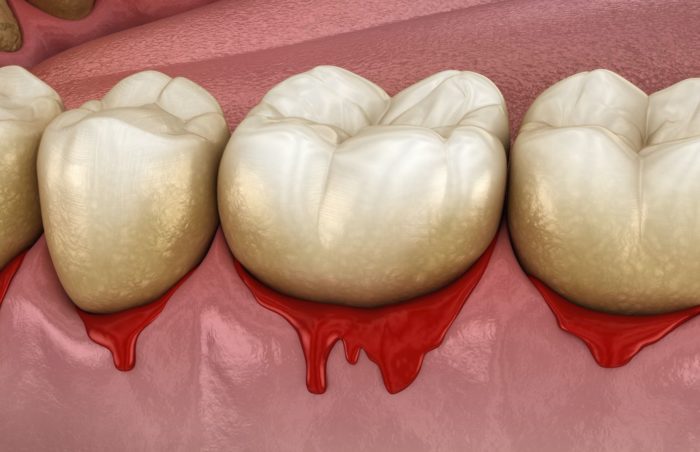The stress of the ongoing global pandemic has led many individuals to put their dental health on the wayside. But a lax oral hygiene regimen can put more than just your teeth and gum health at risk.
A study in the Journal of Clinical Periodontology found that patients with gum disease may be more likely to suffer severe symptoms if they contract COVID-19. This is due to the link between inflamed gums and the body’s systemic inflammatory response.
Therefore, routine dental exams are more important than ever to keep you healthy. The dental team at Lanier Family and Cosmetic Dentistry in Buford, GA describes the gum disease treatment you might expect when you visit your dentist.

Early Signs of Gum Disease
Gum disease is a common condition, affecting about 75% of American adults at some point during their lifetime. It occurs when bacteria in your mouth spreads to infect your gums, deteriorating your gums, teeth, and jaw.
Patients with gum disease may notice swollen, sore, or bleeding gums, especially after brushing their teeth. However, other gum disease patients might not notice any symptoms at all.
This is why regular dental check-ups are important. Advanced stages of gum disease can lead to severe dental damage such as tooth loss that can require extensive dental work to repair.
Periodontal Treatment Options
If your dentist notices signs of gum disease, they will complete a thorough cleaning of your teeth and gums to remove the infection. Scaling and root planing clears plaque and tartar from hard-to-reach spots of your mouth, including in the deep pockets of your gums.
If the infection persists after this periodontal therapy, your dentist may recommend oral surgery. A gum graft stitches gum pockets tighter to your teeth, making it easier to keep the area clean and more difficult for bacteria to infect.
Your dentist may also suggest using an antibacterial mouthwash to eliminate excess bacteria from your mouth. Severe cases of gum disease may require a tooth extraction, a procedure that can be performed in your dentist’s office.
